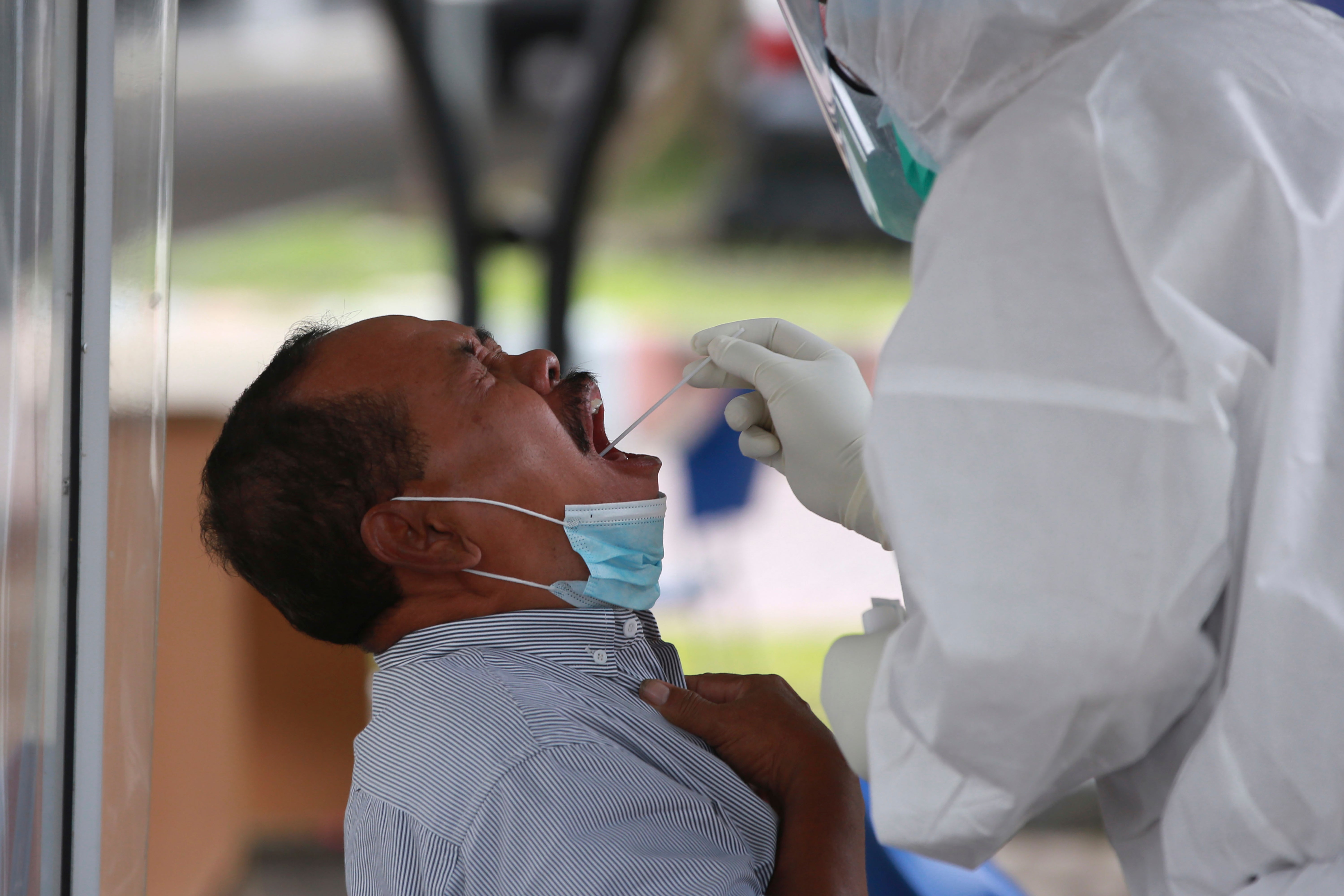Indonesia records its largest 1-day jump in COVID infections
Indonesian health authorities have announced the country’s largest one-day jump in new coronavirus infections, as the country’s number of confirmed cases since the pandemic began crosses 2 million

Your support helps us to tell the story
From reproductive rights to climate change to Big Tech, The Independent is on the ground when the story is developing. Whether it's investigating the financials of Elon Musk's pro-Trump PAC or producing our latest documentary, 'The A Word', which shines a light on the American women fighting for reproductive rights, we know how important it is to parse out the facts from the messaging.
At such a critical moment in US history, we need reporters on the ground. Your donation allows us to keep sending journalists to speak to both sides of the story.
The Independent is trusted by Americans across the entire political spectrum. And unlike many other quality news outlets, we choose not to lock Americans out of our reporting and analysis with paywalls. We believe quality journalism should be available to everyone, paid for by those who can afford it.
Your support makes all the difference.Indonesian health authorities announced the country's largest one-day jump in new coronavirus infections on Monday, as the country's number of confirmed cases since the pandemic began crossed 2 million.
The Health Ministry said it had confirmed another 14,536 new infections and 294 deaths. Along with the more than 2 million infections, Indonesia has reported more than 54,950 deaths, both the most in Southeast Asia
Indonesia, the world's fourth most populous country, has seen infections surge in recent weeks, a climb that has been blamed on travel during last month’s Eid al-Fitr holiday as well as the arrival of new virus variants, such as the the Delta version first found in India.
The surge is putting pressure on hospitals like those in Jakarta — where 80% of hospital beds are full — and has added urgency to the government's plans to be inoculating 1 million people each day by next month. Authorities have so far only fully vaccinated 12.3 million of Indonesia's 270 million people and partially vaccinated another 10.9 million others.
The World Health Organization last week noted that Indonesia’s drastic increase in bed occupancy rates is a major concern and necessitates in the implementation of stricter public health and social measures, including large-scale social restrictions.
The government has resisted a large-scale lockdown due to fears of the economic impact. Offices, restaurants. shopping malls and places of worship remain open, though at 50% of their capacity.
“The situation is worrying,” said Riris Andono Ahmad, an epidemiologist at Gajah Mada University. “We are facing second wave of COVID-19 with the most transmissible variant and the public’s low compliance with health protocols.”
He urged stricter measures.
“All government’s efforts and policy to curb the COVID-19 transmission will be ineffective if it gives a room for people to gather and crowd,” he said.
The national COVID-19 task force said a spike in infections has been seen in Jakarta, Banten, West Java, Central Java, Yogyakarta and East Java provinces. All are located on Java, the most populous of Indonesia’s more than 17,000 islands.
President Joko Widodo last week ordered authorities to step up the vaccination rate.
The slow progress in vaccinations so far can be put down to limited global supply, the unpreparedness of the national health system and vaccine hesitancy, national COVID-19 task force spokesperson Wiku Adisasmito said.
The government has received 104.7 million vaccine doses so far, including 94.5 million from Sinovac, 8.2 million from AstraZeneca, and 2million from Sinopharm. It expects to receive about 50 million Pfizer doses in the coming months, followed by 50 million Moderna doses.
Health Minister Budi Gunadi Sadikin has said deals to import around 104 million AstraZeneca doses have been hit by delays and now only 20 million doses are expected to arrive this year.